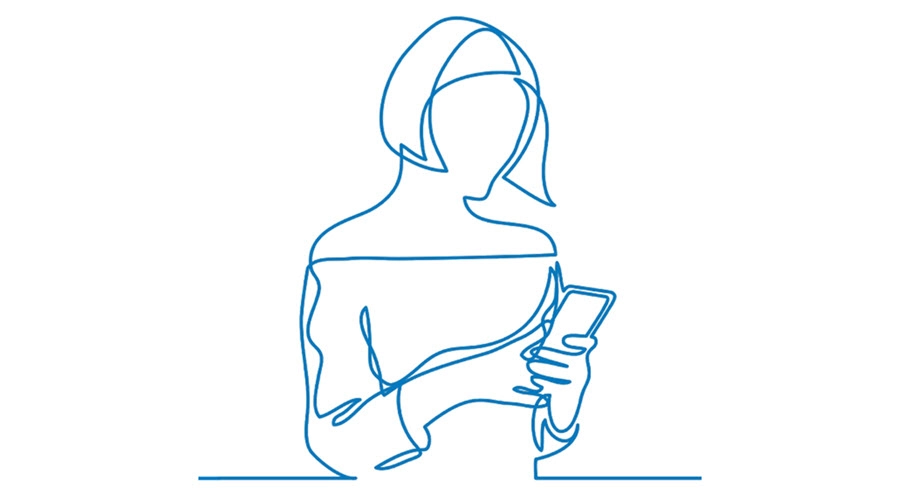Media Centre - Media release - 25 July 2024
One in 10 girls and young women say they face online violence daily: new study

New global research from Plan International and CNN’s As Equals finds girls and women are frequently harassed online.
New global research from Plan International and CNN’s As Equals which gathered insight from more than 600 young women and girls aged 13-24 across nine countries worldwide has found that one in 10 (11%) of girls and young women reported having harmful online experiences daily or almost daily, with almost 40% reporting they have been harassed at least once a month.
The report comes as Australia’s eSafety Commissioner Julie Inman Grant, this week issued legal notices to large tech companies – holding them to account on what they are doing to combat AI-generated child abuse material, deep fakes, online grooming and sexual extortion.
The legal notices will require tech giants such as Apple, Google and Microsoft in Australia to report to eSafety every six months about the measures they have in place to tackle online violence on their platforms.
Girls and young women worldwide have for years, demanded social media and tech companies take urgent action to protect them, with study after study finding shocking accounts of escalating online violence – here in Australia and in almost all corners of the globe. Previous Plan International research found that in Australia, 65% of girls and young women aged 15-25 have been exposed to a spectrum of online violence and half of those who have experienced harassment suffered mental and emotional distress as a result.
Girls want support from tech companies and governments
More than half (67%) of girls and young women surveyed in the new Plan International report, titled ‘Building Digital Resilience – Girls and Young Women demand a Safer Digital Future’ see themselves as primarily responsible for staying safe online. Whilst girls and young women showed digital resilience, they also feel they cannot, and should not, be solely responsible for their safety online, stressing the need for structured support from tech companies, governments, authorities and the wider community.
The research found that 75% of respondents had reported having harmful online experiences ‘at some point’. Almost half of the respondents (44%) reported seeing or receiving unwanted sexual images or videos and one in four (25%) had faced discrimination or hate speech.
A total of 624 girls and young women aged between 13-24 from nine countries (Bolivia, Brazil, Burkina Faso, Colombia, Kenya, Malawi, Nepal, Philippines and Timor-Leste) completed a survey and 73 girls and young women in Brazil, Malawi and the Philippines attended focus discussion groups about their online experiences. As part of the research, they also shared their solutions to make their online experience safer. When asked about which websites and platforms they were encountering upsetting experiences, most selected Facebook, followed by WhatsApp and then Instagram.
Social media is not a safe space for girls
Plan International’s years of research into online violence has underscored the fact that social media is not a safe space for girls, young women, and other marginalised groups, and that measures taken by national governments and tech companies to tackle abuse and harassment to date remain “starkly inadequate”.
“Online violence is a universal issue and Australia is not immune. The calls our e-Safety commissioner has made this week are very important steps in a global effort for transparency and regulation in light of the tech giants failing to enforce any self-regulatory codes on their own,” said Plan International Australia CEO Susanne Legena.
“The bitter truth we must accept is this: online violence is serious and prolific. It silences girls’ and children’s voices, and it causes real and lasting harm. So we must ask, what are we going to do about it?”
“Everyone is accountable for keeping girls safe, from individuals to bystanders, to governments – and especially tech companies.
“What our new report makes crystal clear is that the measures taken to date to improve girls’ safety online are not working effectively, and that the pace of change is far too slow. The results from our study in 2020 show girls and young women need their families and communities, tech companies and authorities to step up, listen to them and support them with all the means at their disposal. But in four years it seems little, if any, progress has been made.
“Girls tell us that when they report, often clearly quite horrific offensive content is inexplicably deemed as acceptable and even when their attackers are banned, they’re back at it days later and often under the protection of anonymity. The system is broken and something needs to change,” she said.
Digital literacy must be addressed
Improved digital literacy and collectively addressing the issues that hold girls back online are highlighted in the report as crucial to creating a future that fosters true gender equality and empowers girls and young women as equal members of society.
When asked what was lacking to protect girls online, participants overwhelmingly advocated for improved digital literacy. The research participants wanted to see accountability from the tech firms – particularly better and easier reporting mechanisms with quicker response times, including the use of technology and AI in detecting and preventing fake accounts.
Crucially, the report concludes that education, legislation and overall digital awareness must keep pace with technology.
The future girls want to see
In September 2024 the United Nations General Assembly will meet for the Summit of the Future where they will be agreeing a ‘Global Digital Compact’ which is expected to ‘outline shared principles for an open, free and secure digital future for all’ including the application of human rights online.
Ahead of Summit of the Future, Plan International is working with girls and young women to call on tech companies and states to fulfil their duties to build a trustworthy internet and introducing accountability for discrimination and misleading content. Working in collaboration with girls and young people Plan International has launched a Girls’ Pact which sets out their recommendations for a better future.
Media contacts


